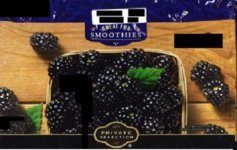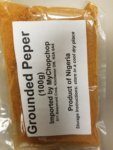The FDA alerted consumers to a hepatitis A virus (HAV) contamination of frozen blackberries sold under the Kroger grocery store “Private Selection” brand. The contamination was discovered by the FDA as a part of an ongoing frozen berry sampling assignment. The berries were sold nationwide under the grocery store’s “private selection” brand. The FDA is advising consumers not to eat and to throw away frozen fruit purchased the Kroger’s “Private Selection” brand. The products have a two-year shelf life. At this time, the FDA and the CDC are not aware of any cases of hepatitis A linked to the consumption of Kroger’s frozen blackberries. @ https://www.fda.gov/food/alerts-advisories-safety-information/public-health-alert-concerning-hepatitis-virus-contamination-kroger-brand-frozen-blackberries?utm_campaign=Kroger%20Brand%20Frozen%20Blackberries%206_7_2019%20Email&utm_medium=email&utm_source=Eloqua_medium=email&utm_source=Eloqua
ruth
https://www.fda.gov/food/alerts-advisories-safety-information/public-health-alert-concerning-hepatitis-virus-contamination-kroger-brand-frozen-blackberries?utm_campaign=Kroger%20Brand%20Frozen%20Blackberries%206_7_2019%20Email&utm_medium=email&utm_source=Eloqua_medium=email&utm_source=Eloqua
ruth
The Québec Ministère de la Santé et des Services sociaux (MSSS)is investigating two clusters of outbreak related to raspberries from Chile. MSSS has confirmed 95 cases of viral outbreaks (probably Norovirus) associated with raspberry cake. The first cluster comprised 65 people, with an attack rate of 62%. The second cluster consisted of 30 individuals with an attack rate of 60%. The Canadian Food Inspection Agency (CFIA) is investigating due to possible Norovirus in Individual Quick Frozen raspberry. @ https://efoodalert.wordpress.com/2019/06/06/two-viral-gastroenteritis-outbreaks-in-quebec-linked-to-chilean-iqf-raspberries/
The Québec Ministère de la Santé et des Services sociaux (MSSS) has confirmed 95 cases of viral gastroenteritis in two separate outbreak clusters linked to consumption of raspberry cake. According …
ruth
The Canadian Food Inspection Agency (CFIA) announced the recall of MyChopChop brand “Grounded Peper” from the marketplace due to possible Salmonella contamination. The contamination was discovered due to a positive test result conducted by CFIA. The product was imported to Canada from Nigeria. No illnesses have been reported. @ https://www.inspection.gc.ca/about-the-cfia/newsroom/food-recall-warnings/complete-listing/2019-06-03/eng/1559607340475/1559607342149
MyChopChop is recalling MyChopChop brand Grounded Peper from the marketplace due to possible Salmonella contamination.
ruth
Cold-smoked trout and salmon produced in Estonia was found to be the source of the Listeria monocytogenes outbreak which has affected 22 people in five countries (Denmark (9 cases), Estonia (6), Finland (2), France (1), and Sweden (4)) since 2014. Five patients have died as a result. The first case had symptom onset in July 2014 in Estonia, and the most recent case occurred in Denmark in February 2019. L. monocytogenes isolates, matching the outbreak strain were detected at the wholesale and retail level in four countries (i.e. France, Denmark, Italy, and Sweden). Traceability information of the contaminated batches pointed to the Estonian processing Company as the single common manufacturer of these fish products. The raw fish was received from suppliers in Norway and Finland. Environmental samples of the Estonian plant demonstrated the presence of L. monocytogenes that matched the outbreak strain in two samples. The presence of L. monocytogenes strains matching the outbreak strain over several years suggests the persistence of the microorganism at the Estonian company’s premises. @ https://www.efsa.europa.eu/sites/default/files/scientific_output/EN-1665-FINAL.pdf
https://www.efsa.europa.eu/sites/default/files/scientific_output/EN-1665-FINAL.pdf




